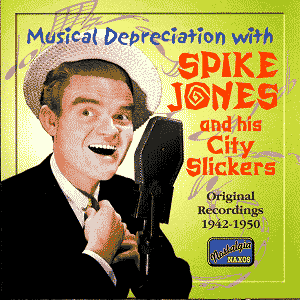
Here is the definition of a song parody from Allmusic:
"Song parody is a form of musical comedy in which the performer mimics certain aspects of already-existing material as closely as possible, while placing it in a new, ridiculous context. Most commonly, song parodies feature silly rewritten lyrics, which are usually based on the sound patterns of the original words and performed to the original music — the closer the resemblance, the more clever the parody, although ideally, the new lyrics are wacky enough to stand on their own as well. Some song parodies also add humorous instrumentation or sound effects, while others rely as much on the silliness of the new context as the skill with which they ape the original. Sometimes, parodies don’t rewrite a specific work, but rather exaggerate the mannerisms of a certain style or artist in new (yet similar) compositions — it’s up to the audience to make the connections and catch the references. However, even though the frame of reference is larger, the key elements of parody — mimicry and comic recontextualization — are still present, and a full understanding of the humor still depends upon recognition of the source material. Since humorous exaggeration is so important to this style of parody, it’s the one that most frequently crosses the line into satire — i.e., making specific, pointed commentary on the performers, fans, aesthetics, or other qualities associated with the original works. Whatever their scope or ambition, though, song parodies have long been the most popular type of musical humor, simply because anyone can at least try their hand at the form."
… "anyone"? Tell that to Lindley Armstrong Jones (1911 – 1965), universally known as "Spike." (His father, who worked for the railroad, compared his lanky son to a railway nail.) Nobody, but nobody, did song parodies better than Spike Jones.
A studio musician by trade, Spike eventually formed his own band in the early ’40s. Maybe it was war jitters, but the public immediately took a shine to Spike’s insanity. Sure, there had been novelty bands before, but Spike’s special blend of mayhem and melody seemed to be just right for the big band/swing era. Only later, when rock ‘n roll took over, would Spike have to concede defeat. (He is rumored to have said that most of the early rock music was unconsciously parodic.)
If you’ve never seen Spike’s peculiar form of musical expression, bits and pieces of his appearances on television (which I remember watching as a kid) can be found here and there on the Internet; last time I looked YouTube had his 1945 Soundie version of "Cocktails for Two."
Among my favorite Spike Jones deconstructions:
"Der Fuhrer’s Face": Spike’s major contribution to the war effort; after hearing this, no one could take the Austrian paperhanger seriously.
"None but the Lonely Heart": Tchaikovsky’s Opus No. 6 gets thoroughly mauled, being superimposed on a very, very bad soap opera featuring great vocalizations by Helen Grayco and Dick Gardner.
"Laura": Spike’s version is a "straight," lush rendition up until the midpoint; then things go crazy.
and my favorite, "My Old Flame": Paul Judson’s singing (how he did it without breaking up is beyond me) is eclipsed by legendary voice artist Paul Frees doing a manic, dead-on impression of Peter Lorre fondly remembering his victims—er, former loves.
Later song parodists like "Weird Al" Yankovic rightly pay homage to Spike Jones. Without him, they wouldn’t have had careers.
Spike was an American original; nothing like him will ever come along again.
P. S.: A website called Tuxedo Junction has an even dozen of Spike’s greatest tunes available (run time: 38 minutes); however, the play list is subject to change.
—Mike Gray

Spike Jones is a treasure indeed, Mike. Thanks for reminding me to dig up my Spike CD and give it a spin!